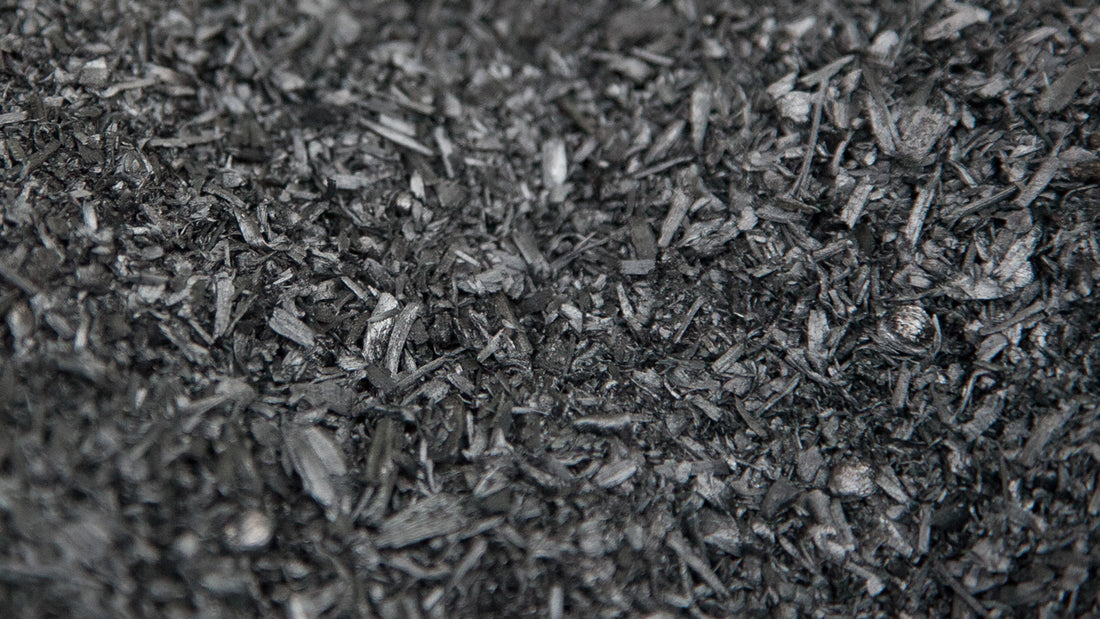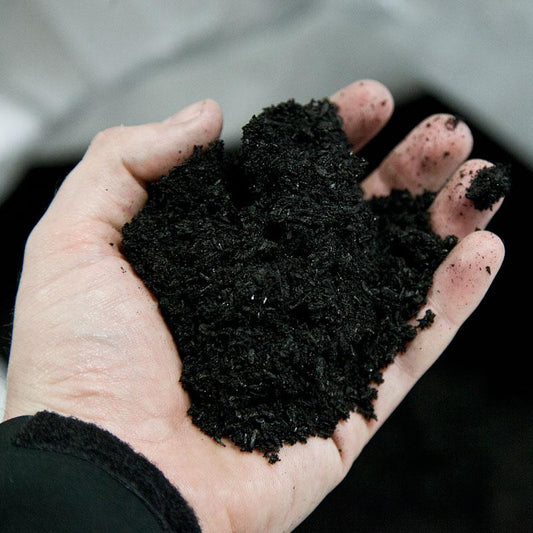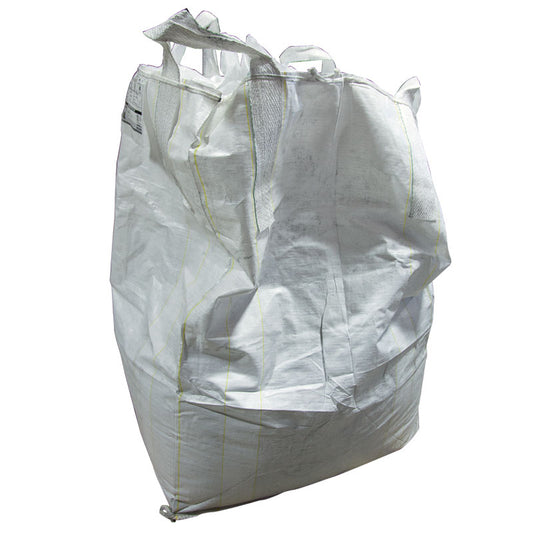Have you heard of biochar?
This “new” organic fertilizer is a safe, effective soil amendment with a plethora of benefits from increasing water retention and soil microbes to reducing greenhouse gas emissions. But what is it, and how does it work? Biochar is short for “biomass charcoal.” Unlike mined charcoal, it is made by pyrolysis (decomposition brought about by high temperatures).
Organic materials (this means untreated wood waste) are heated at over 1000°C in an oxygen free environment. The result is biochar, a specialized type of charcoal whose structure is microscopically extremely porous.This porous surface is what gives biochar its numerous benefits in the garden, as it creates sites to hold nutrients and moisture, and habitat for microorganisms.

History of Biochar
Although it may seem like a new thing, the basic process has been used for over 7,000 years in the Amazon Basin of South America, where it is called Terra Preta or “black soil.” These ancient fields of biochar are still incredibly fertile. Today's technology creates a similar product, but using cleaner burning machines. In fact, it is because of the improved technology that biochar is touted as a potential solution to greenhouse gas emissions. There are numerous methods to dispose of biomass waste being used today, such as composting, incineration, and slash-and-burn.
Environmental Considerations
Of all the many methods of waste disposal, creating biochar is currently considered to be the most environmentally friendly. It is the only method that does not release greenhouse gases into the atmosphere, and the resulting product sequesters atmospheric carbon in the soil for thousands of years. Thus, by using biochar in your garden, you are supporting a new technology with the potential to make a huge difference for Mother Earth. Their product is made with especially high temperatures, so that it does not contain PAHs (Polycyclic Aromatic Hydrocarbons) or PCBs (Polychlorinated Biphenyl). Even organic certification does not require testing for these compounds.
What Does Biochar do in the Soil?
Chemically, biochar does not add any nutrients to the soil. Its benefits come primarily from its unique structure. Although it is a source of carbon, it can take thousands of years to break down fully. However, it can improve organic matter content by creating a better soil for organic matter to build up.
Biochar's porous structure provides many benefits:
- It attracts and retains water molecules, thus improving the water holding capacity of the soil. It is especially useful in this respect for areas with low rainfall and soils with poor water retention.
- It decreases nutrient leaching and increases cation exchange capacity (CEC) so nutrients are more available for plant roots to take up.
- Biochar has a negative charge that binds to nutrients such as calcium, potassium and magnesium. This also results in reduced soil acidity (a higher pH).
- The nutrient binding means that less fertilizer is needed. Since there's less run-off of nutrients, it is safer for groundwater and surface water too.
Biochar Benefits Soil Biology
The porous structure also creates the perfect habitat for soil microbes and beneficial fungi to flourish. Although the microorganisms will eventually move into the biochar, you will see an even bigger benefit if you “pre-charge” or “activate” your biochar (this process is also sometimes called inoculating, maturing, culturing, or charging the biochar). This optional step is done prior to incorporating the biochar into your garden, and has the added benefit of preventing excessive nutrient binding (where so many nutrients become bound up with the biochar in the soil that not enough are available to the plants for a short time. Eventually the biochar will effect a nutrient gain, once the binding evens out).
Charging Your Biochar Before Planting
Aim for up to a one-inch layer of biochar, mixed to a depth of at least six inches to get it to the root zone. You only need to add it once, because it will last for a lifetime or more!
- To activate your biochar, the preferred method is to mix it into your compost pile as you build it. You can add as much biochar as you will need for your whole garden, up to a maximum of an equal ratio with the compost.
- Not only does this improve the effects of the biochar when it is added to your soil, but it also improves the compost process itself – resulting in a shorter composting time, stimulated microbial activity, reduced gaseous emissions, and reduced odor.
- If you use soiled farm animal bedding in your compost piles, you can “double-charge” biochar by spreading it up to an inch thick in the fresh bedding. By the time it is spent, collected, composted, and ready to spread on your garden soil, it will be well activated.
- Another effective way to activate biochar is to include it when brewing your own compost tea. Just stir it into the water before adding the other compost tea materials, and brew as per the regular instructions.

Shortcut to Activating Your Biochar
If you don't have the time to activate your biochar by either of these methods, you can choose from a few shortcuts.- A week or two ahead of when you will use the biochar, mix it with finished compost, organic fertilizer, worm castings, humates, and/or mycorrhizae.
- Incorporate biochar with any of these just prior to adding them to the soil.
- Irrigate, and wait a week or two before planting.
If you choose not to activate your biochar, you can instead encourage microbes to “move in” to the biochar's porous surface by wetting it down before mixing it into the soil. However, even if you don't do anything to the biochar before incorporating it into your garden, you will still see the benefits of increased water retention, microbial activity, organic matter, nutrient retention, and improved soil structure. Taking the few extra steps described here will simply speed up the process.
Try adding some biochar to your soil and grow organic... for Life!
For more information on organic growing, check out our Resource Center and check out our biochar for sale.




1 comment
how to increase the size of onion from 1.5" to 2.5" through biochar. Because I want to enrich my soil.